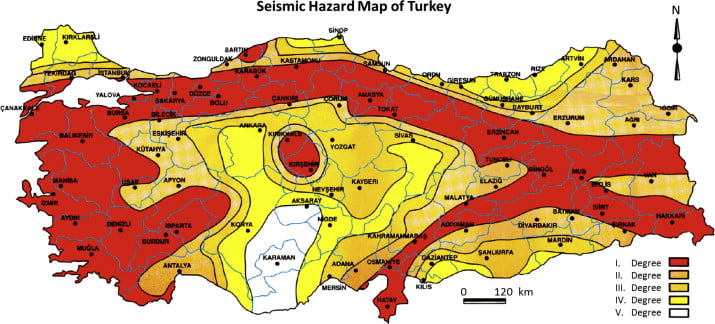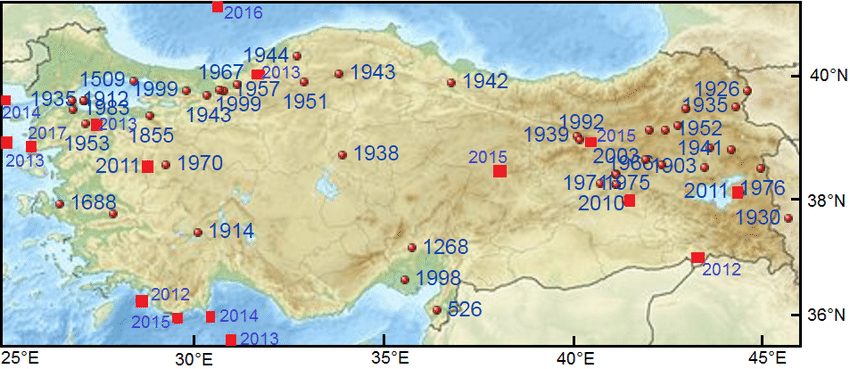Understanding Turkey’s Seismic Landscape and Earthquake Resilience
The Geological Landscape of Turkey

The Geological Landscape of Turkey
Seismic Landscape of Turkey, a country known for its rich history and diverse landscapes, also lies in a region highly prone to seismic activity. The complex geological dynamics of the area have made it susceptible to earthquakes throughout its history.
Here, we delve into the seismic nature of Turkey and explore the impact of earthquakes on this historically significant land.
The Tectonic Forces at Play
Turkey’s location: Turkey straddles two major tectonic plates, the Eurasian Plate and the African Plate. The collision and convergence of these plates have given rise to several active fault lines that crisscross the country.
The North Anatolian Fault (NAF): The NAF is one of the most prominent fault lines in Turkey, running parallel to the northern coast of the country. It marks the boundary between the Eurasian and Anatolian Plates and has been the source of numerous significant earthquakes in the past.
Historical Earthquakes

Turkey has a long history of earthquakes, some of which have had profound and far-reaching effects:
- 1999 İzmit Earthquake: This devastating earthquake, measuring 7.6 on the Richter scale, struck the northwestern part of Turkey, causing extensive damage and loss of life. It highlighted the urgent need for improved building standards and earthquake preparedness.
- 1939 Erzincan Earthquake: Another major earthquake, registering 7.9 in magnitude, struck eastern Turkey. It resulted in significant casualties and highlighted the seismic risks in this part of the country.
Seismic Preparedness and Mitigation
Recognizing the ongoing seismic threat, Turkey has taken significant steps to enhance its preparedness and mitigation efforts:
- Building Codes: Turkey has implemented stricter building codes and retrofitting measures to make structures more earthquake-resistant.
- Early Warning Systems: The country has invested in early warning systems to provide alerts and precious seconds of preparation before a seismic event.
Recent Earthquakes
Despite these measures, Turkey continues to experience earthquakes. In recent years, notable seismic events have occurred:
- 2020 Elazığ Earthquake: This earthquake, with a magnitude of 6.8, struck eastern Turkey, resulting in casualties and property damage.
- 2021 Aegean Sea Earthquake: A 7.0 magnitude earthquake in the Aegean Sea shook western Turkey and the Greek island of Samos, emphasizing the ongoing seismic activity in the region.
Conclusion
Earthquakes are an inherent part of Turkey’s geological reality, and the country continues to work diligently to mitigate their impact. As Turkey balances its historical significance and vibrant modern life with the seismic challenges it faces, the importance of earthquake preparedness and awareness remains a top priority.
Discover the captivating new series The Assassins now streaming with English subtitles on our site.
Kurulus Osman Season 5 Episode 155 With English Subtitles
Watch Rumi with English Subtitles
Just a reminder, this website does not host any videos. We found the episode on Facebook for you to enjoy





